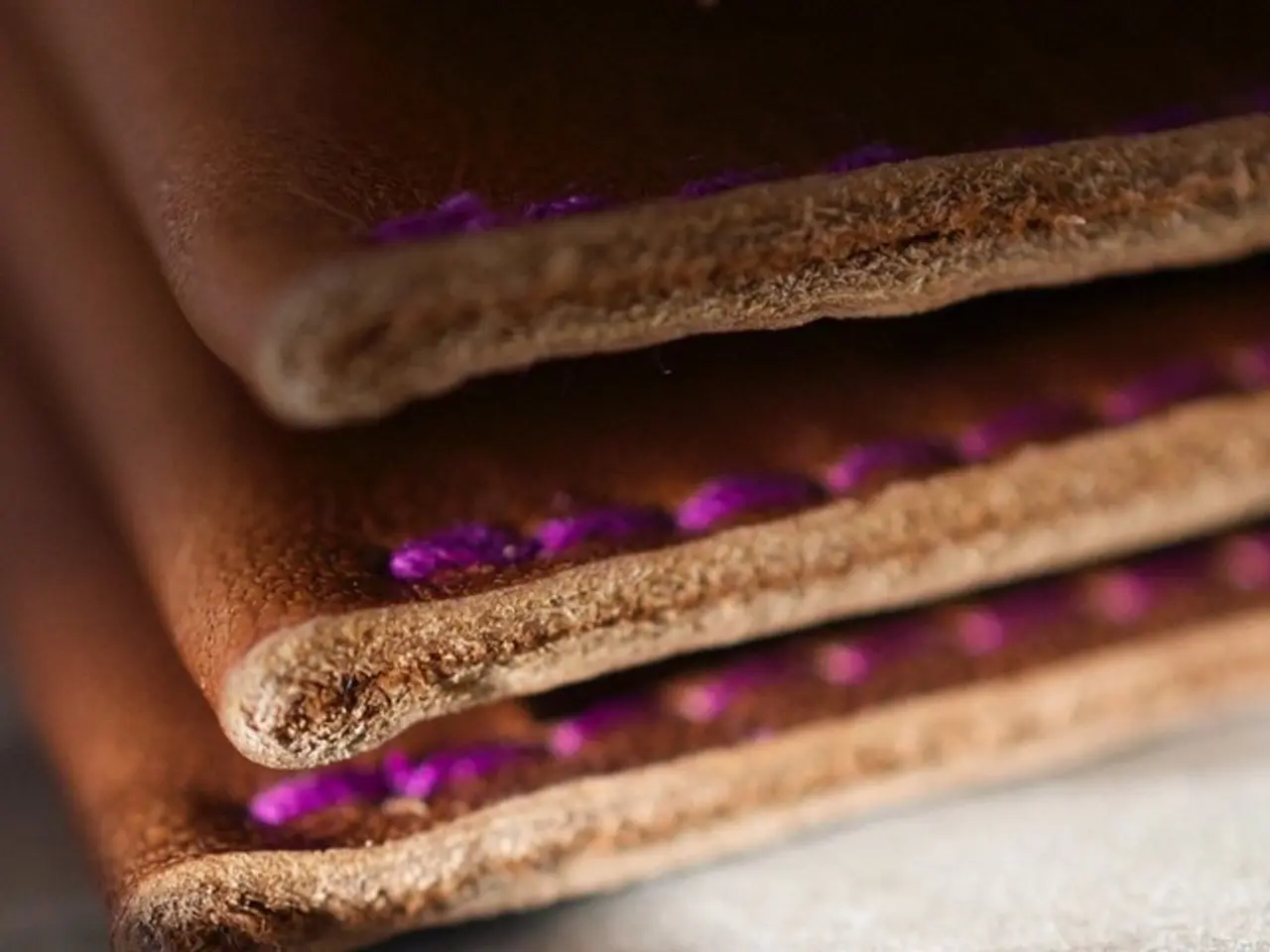Craft LOVR, not Leather Jackets: Innovations in Modern Fashion
In a significant step towards a greener future, the Future Materials Lab, in partnership with development partner Revoltech, has conducted customer surveys for sustainable materials at the IAA Mobility 2023. The surveys, aimed at shaping the future of automotive interiors, have revealed some exciting findings.
Traditional leather production is known for its high carbon emissions, excessive water usage, and harmful chemicals. However, the preferences of customers surveyed seem to be leaning towards more eco-friendly alternatives.
One such alternative that has gained considerable attention is seat covers made from recycled blue jeans, which finished second in the customer surveys. This innovative use of waste materials not only reduces environmental impact but also offers a unique, sustainable twist to car interiors.
The runaway winner, however, was LOVR, a regenerative, plastic-free material developed by Revoltech. This fabric, which feels like leather and is flexible, oil-free, vegan, and based on waste materials from industrial hemp harvesting, won first place in the surveys. LOVR's popularity was further cemented by its numerous accolades, including the German Design Award 2025, Techtextil Innovation Award 2024, Green Product Award 2024, and Hessian Founder Award 2021.
LOVR's CO2 footprint is just 0.51 kilograms per square meter of area, a stark contrast to the 20 to 60 times larger footprint of animal leather. This makes LOVR a promising candidate for use in Volkswagen's interiors, with potential inclusion in the first VW models by 2028.
The Future Materials Lab, a division of Volkswagen Research and Development, tests materials like LOVR for scratch resistance, abrasion resistance, and other car interior durability factors. The Lab also continues to explore sustainable material options for Volkswagen's interior components.
Revoltech, a startup from Darmstadt, is at the forefront of this sustainable materials revolution. They are developing materials based on industrial hemp as a vegan alternative to leather or synthetic leather. They are working closely with designer Melina Bucher, who is focusing on the ecological and ethical challenges of conventional leather production.
Thomas Taddigs, the Head of Interior Material Technology in Volkswagen AG's Technical Development, emphasizes the importance of materials being easily separable for recycling in sustainability. This philosophy is shared by Timo Achtelik, a doctoral candidate in 'Frugal Sustainability,' who also underscores the importance of easy separation of materials during component development.
Since summer 2024, an exhibition in the Autostadt Wolfsburg showcases visitor-chosen designs for sustainable materials. This interactive approach to sustainability not only educates visitors but also encourages active participation in shaping the future of automotive interiors.
For those interested in staying updated on connected life, renewable energy, and new mobility, a weekly newsletter is available. This newsletter provides insights into the latest developments and trends in sustainable materials and technologies, making it a must-read for anyone passionate about a greener future.
Read also:
- Is it feasible for nuclear energy to supplant coal-based electricity production in India?
- Pharmaceutical corporation to invest $30 billion in U.S. for increased natural gas production
- Demonstrating Carbon Capture in Agroforestry Through Digital Measurement Verification (MRV)
- Homeowners in Britain swiftly adopting eco-friendly home improvements







